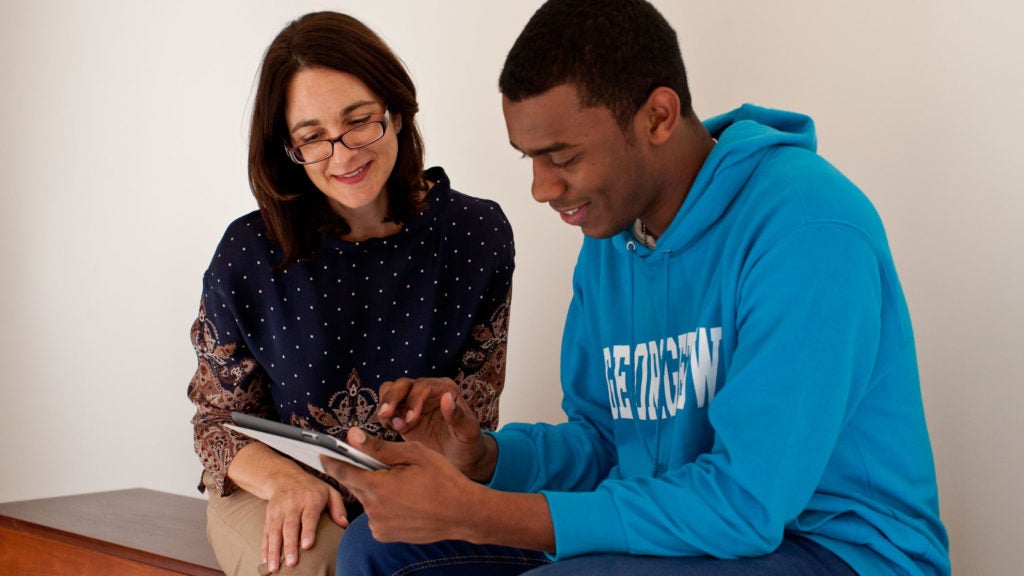At SFS-Q Technology and Learning Go Hand-in-Hand

Imagine drawing a graph with your finger and applying a voiceover to explain an economic concept. The possibilities with that kind of technology, available through applications for the iPad, are what’s driving Georgetown University School of Foreign Service in Qatar (SFS-Q) Office of Academic Services (OAS) to explore and use current technology to help Georgetown students achieve their best academically.
“Putting resources in the hands of the students,” that’s how Anne Nebel, Georgetown University SFS-Q Assistant Dean for Academic Affairs, describes the goal of the technology initiative under development in OAS. She explains, “In OAS the focus is to support student achievement across the curriculum. We have looked at apps related to economics, geography, French and Arabic as foreign languages, and academic writing across the disciplines.” But, as Nebel points out, student achievement is more than mastering a course.
Whether it’s brainstorming for the next paper, managing one’s time, creating an outline structure, developing a thesis, or writing citations, there are essential areas of learning that, depending on a student’s strengths or weaknesses, may be enhanced through technology.
“Because we are in this unique and exciting and very multi-lingual society and context, we see students with lots of different strengths and with different kinds of needs,” says Nebel. “We try as best we can to identify student strengths,” she adds, “and help them to find ways to build on their weaknesses.”
Throughout the years OAS has offered academic support to all Georgetown students through one-on-one tutorials, workshops, and guidance, but the tutors are adding a new dimension to their services by tapping into the multitude of possibilities now available through technology.
And it’s not just apps that are making their way into the collection of tutor’s tools. Just ask Samreen Khan, OAS economics specialist. Because of ease of use and portability, tutors like Samreen can send a podcast or a video from Khan Academy, for example, to be accessed through an iPad or a laptop with a message to the student saying “here’s a little something that can help explain the concept we discussed earlier.”
As for helping students with writing, tutors such as OAS writing specialist Tara Corman have found apps that focus on mind-mapping, conceptual-mapping, and conversion of mind-maps to outlines for papers. In foreign languages there are apps to create flash cards should students want to study a subset of vocabulary words and quiz themselves.
“Our mandate in Academic Services is to help students reach their highest level of achievement in our curriculum,” says Nebel. With that in mind, OAS is also looking at new technologies to assist students with learning differences. Nebel gives as an example Dragon NaturallySpeaking, a speech to text software that records speech and converts it to text that students can use as notes.
When reviewing the range of new technologies, Nebel says, “We’re trying it. We’re piloting it. If it makes it easier, we’ll run with it. Supporting students and helping them work independently has always been OAS’s goal.”